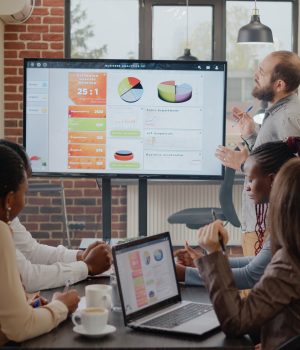Move over Millennials, here come the new kids on the block!
Meet the new kids on the block: Centennials
So we now have Generation Z, digital natives or Centennials, already there are several labels to welcome the newest to our workforce.
Having only just grown accustomed to navigating how best to retain Millennial talent, how will businesses now prepare for the Centennials?
With 5 generations working side by side, 2020 will see 50% of the workforce being Millennials and by 2025 Centennials will account for 30% of the global workforce.
How well do you know your generational workforce?
| Generation | Born |
| Centennials/Gen Z | After 2000 |
| Millennials/Gen Y | Between 1980 – 2000 |
| Generation X | Between 1965 – 1980 |
| Baby Boomers | Between 1946 – 1964 |
| Traditionalists or Silent Generation | Before 1945 |
According to Deloitte, Millennials are looking forward to welcoming their new co-workers, but are also wary.
They believe the strength of Centennials lies in their technology and creative skills, which will have a positive impact on the business.
But they are concerned they lack the necessary softer skills to drive long term business success, such as ‘patience, maturity and integrity’.
Communications
The biggest difference for businesses to manage between older and younger generations is the preferred communication styles of the 5 generations.
It has almost become a cliché: Millennials send text messages, tweets and instant messages to communicate, while baby boomers and older Gen Xers tend to prefer phone calls and emails.
Now throw in the Centennials with a tendency to use abbreviations, informal language and colloquialisms, and you’ve got a recipe for serious communication breakdowns!
So how do we understand what makes them tick and communicate on their level?
Work habits
Centennials are ready to shake up the workforce by the way they work which is different to other generations.
Young and tech-savvy, they want to make a positive change. In their life-time they have never known a non-digital world.
They are socially and environmentally aware, and have a preference to work in organisations that support these causes.
With their ability to multi-task through multiple devices they have discovered the right work-life balance so will be keen on flexible working with perhaps the option of home-working on offer.
They are able to juggle multiple projects at one time, without sacrificing the quality of their work – all the while, mastering a work/life blend.
Whilst they are independent workers, they are keen to learn from their team.
So while the way they work may be different to previous generations, there are great opportunities to learn from (and teach) this hungry, tech-focused workforce to give your business a competitive edge.
- Invest in training courses geared to their way of learning.
- Adopt the latest technology to encourage their productivity
- Create a mentorship programme appointing mentors to guide them
- Set up sponsored study options
- Open up coaching to centennials to give them instant access to develop their softer skills
- Enable diverse project teams with a range of skills to encourage different perspectives and innovation
Centennials are informal pragmatists. They have had a much more informal upbringing than older generations and the casual start-up, chase-your-passion, anything-is-possible Millennial mindset has set an example.
- establish ‘Intrapreneur’ schemes providing the opportunity for centennials to build on their entrepreneurial skills to benefit the organisation
- create the opportunity for a work-life balance and meaning
If your organisation does not adapt to meet their expectations, then Centennials will move on quickly to pastures new.
What do you think? How do you prepare for welcoming the emerging generation in your organisation?
I would love to hear your thoughts in the comments section.
For more business tips, check our entrepreneurship section and subscribe to our weekly newsletters.






![The 15 best finance websites you should bookmark right now [2025 Edition] alphagamma The 15 best finance websites you should bookmark right now [2025 Edition] entrepreneurship finance opportunities](https://agcdn-1d97e.kxcdn.com/wp-content/uploads/2024/09/alphagamma-The-15-best-finance-websites-you-should-bookmark-right-now-2025-Edition-entrepreneurship-finance-opportunities-300x350.jpg)